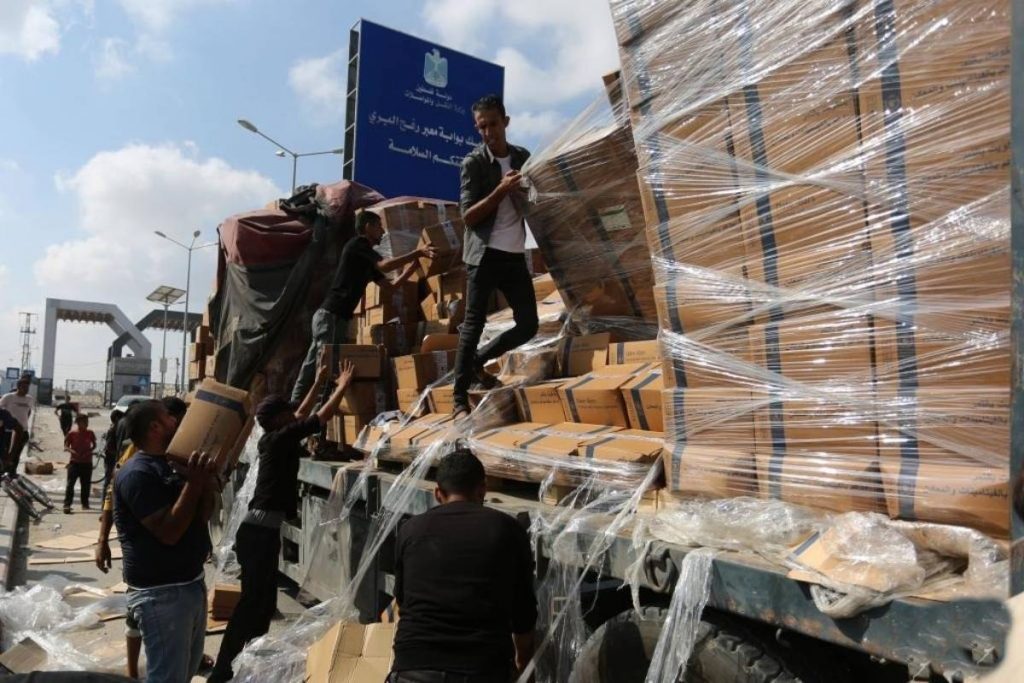The UN Office for the Coordination of Humanitarian Affairs (OCHA) said excessive delays at Israeli checkpoints have affected deliveries of planned aid, including food, medicines, water, and other lifesaving supplies, to the war-torn Gaza Strip.
In its latest situation update, the OCHA said: “Humanitarian partners were forced to cancel or delay missions in two instances due to excessive delays at Israeli checkpoints or because the agreed routes were unpassable.”
Between January 1-11, only 21 per cent of the deliveries to the north of Wadi Gaza proceeded, it said.
The UN agency noted that of the five missions that were able to proceed, humanitarian partners were only able to deliver all of the planned aid in two.
“The ability of humanitarian partners to respond to the extensive needs in the northern part of Gaza is being curtailed by recurring denials of access for aid deliverers and lack of coordinated safe access by the Israeli authorities.
“These denials and severe access constraints paralyse the ability of humanitarian partners to respond meaningfully, consistently and at-scale,” the OCHA said in its update.
The UN agency further claimed that between Sunday to Wednesday, multiple planned missions to deliver urgent medical supplies to the Central Drug Store in Gaza City, as well as planned missions to deliver fuel to water and sanitation facilities in Gaza city and the north, were denied by the Israeli authorities.
This marked the fifth denial of a mission to the Central Drug Store since December 23, 2023.
As a result, hospitals in northern Gaza remain without sufficient access to life-saving medical supplies and equipment, OCHA said.
“The rate of access denials seen in January 2024 so far presents a significant deterioration when compared to those of December 2023, where more than 70 per cent (13 out of 18) of planned UN missions to the north were coordinated and undertaken, where needs are estimated to be the highest and most severe.”
The OCHA update went on to say that due to the repeated denials of delivery of fuel, water and sanitation facilities, people in Gaza has been deprived of access to clean water, and escalating the risk of sewage overflows as well as the rapid intensification of the spread of communicable diseases.
Before the raging Israel-Hamas war erupted on October 7, 2023, at least 500 aid trucks used to reach Gaza via the Rafah and Kerem Shalom crossings.
However, this number has drastically reduced now, with some days where not even one truck was allowed to enter the Hamas-controlled enclave.
The World Health Organization (WHO) and other international bodies have warned of famine, hunger and spread of diseases in the densley-populated enclavea.
Afrer international interventions, including from the US, the Israel Defense Forces (IDF) alowed trucks into Gaza but still much less than what was earlier.
Amid the unabated fighting between Israel and Hamas in the Gaza Strip, the death toll in the besieged enclave increased to 23,469 as of Friday, with a total of 59,604 injured persons.
